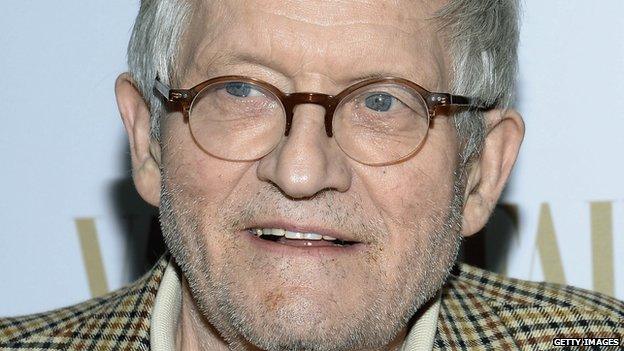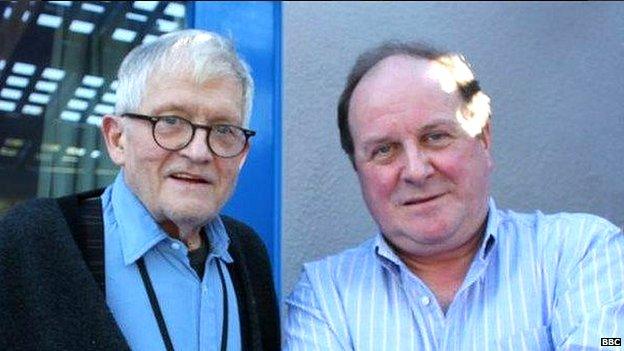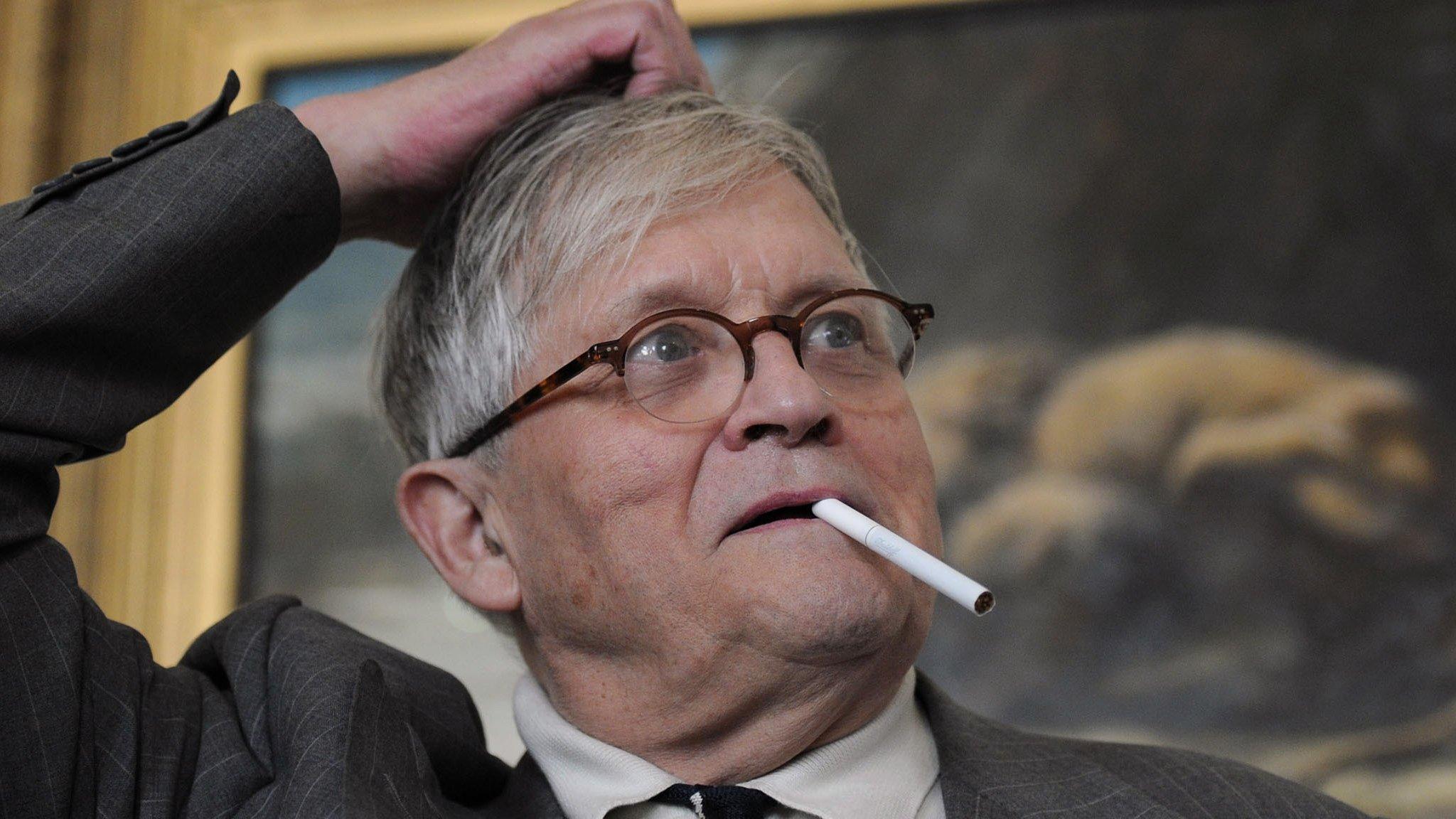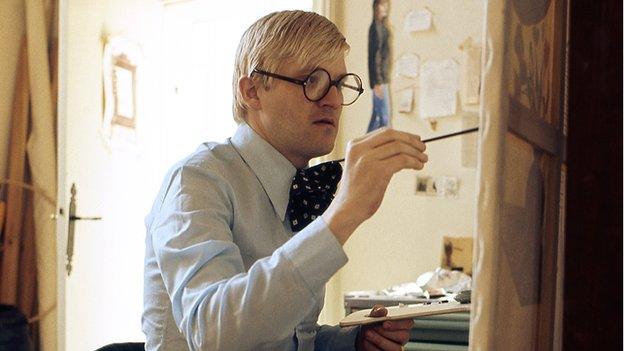David Hockney 'working harder than ever'
- Published

Hockney says he is still learning every day as he enters his later years
Artist David Hockney, 77, has told BBC Radio 4's Today programme that he is working harder than ever from his home in Los Angeles.
Speaking to broadcaster James Naughtie, external, Bradford-born Hockney said he spends more time painting now as his deafness has curtailed his social life.
"I work as hard, even harder now," he said. "I just work all the time. I don't go out from here - I'm too deaf.
"I don't really have much of a social life and I don't really mind much."
Hockney said he is "perfectly happy", despite leaving his home rarely. "I go out to the dentist, the doctor's, the bookshop and the marijuana store," he went on. "But that's it."
The artist said he now avoids parties as he cannot hear properly when there are more than one or two people in a room.
Yet he said he was "discovering things all the time still" and defends his adopted home city in California, to which he moved in the 1960s.
"The light is 10 times brighter," he can be heard saying in an interview broadcast on Thursday. "I remember one or two people saying to me, 'Why have you come here to this cultural backwater?'
"Well, some of the great works of art of the 20th Century have been made here. City Lights, Some Like It Hot. Hollywood then was still big."
The artist, who in recent years has become renowned for his iPad works, added that drawing remained at the heart of his work.
"Drawing is 50,000 years old. You don't give it up just because a photograph comes along. Photographs aren't good enough."
The Bradford-born artist recently opened up his personal archive for the first time for a feature-length BBC Two documentary that will be shown in cinemas from 25 November.
Hockney is directed by Randall Wright, who previously made the acclaimed documentary Lucian Freud: A Painted Life.

James Naughtie, Today programme presenter, on David Hockney's house
David Hockney is most comfortable in California. Despite spending more time in Yorkshire in recent years, rediscovering the light and the rhythms of the seasons that he knew as a boy, it's high in the Hollywood hills that he is most at home.
He came here first in 1964, having warmed up in New York in the bohemian world that opened up for him there, and the blazing sun has held him captive ever since.
We met in the house where's he's lived for more than 20 years, on a wooded escarpment above the winding path of Mulholland Drive that leads you through the canyons to the highest point in the hills.
But he prefers not to clear the way for an uninterrupted view over the cityscape and the mountains, and instead lives in a home cocooned by trees that shelter a blissful pool lying below the house that's perfectly concealed from the world beyond.
We had a simple lunch together in a room jumbled with an artist's paraphernalia, books and frames everywhere, and a high fireplace which he seemed to have painted himself.
Through the windows on the wooden terrace, the colours were fierce - reds and blues on the walls and a roof that he said astonished the men who painted the house on his instructions.

They didn't think it would work, but it did. The house seems to ramble, the highest point of the roof painted in glorious pink, but it feels like a nest, decorated in the colours he most loves.
The studio is high and long with light from above, the place where he spends many hours every day exploring what can be done with his photographs as well as with his paints.
The walls are covered in canvasses (some from the wolds in east Yorkshire) and electronic images - group portraits built from simple shots taken on a iPhone or created on his iPad - and dominating the walls are the pictures that are about to leave for a new exhibition in New York.
They're another adventure in perspective, he says. At 77, it remains his fascination and, he says, he still uncovers secrets.
Hockney's house is a private place. He says he doesn't go out much these days, but welcomes friends there and, above all, finds the peace and the space to work there.
Leaving him in his studio, turning back in the late afternoon to work that would absorb him into the evening, it was easy to understand why he found in the perpetual Californian summer the place where he was happiest.
- Published6 November 2014

- Published4 September 2014

- Published16 January 2012